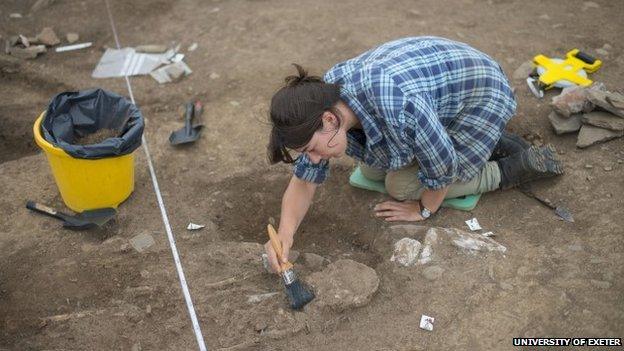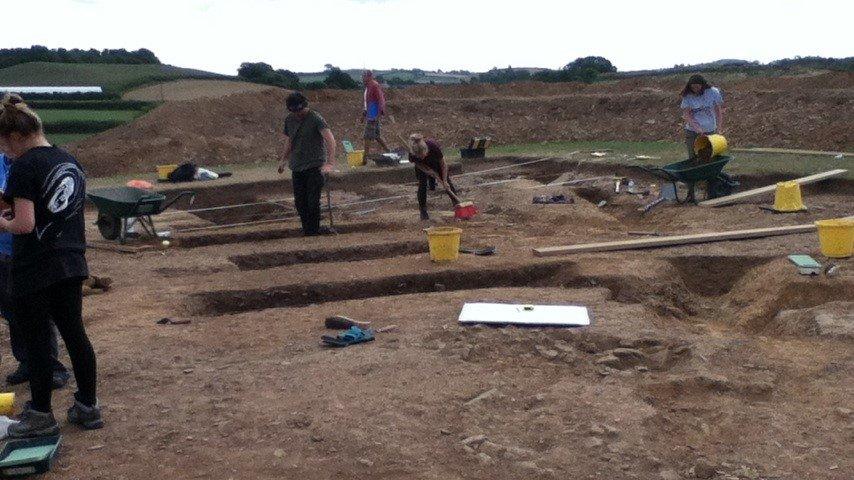Roman cemetery: Fifteen skeletons found at Ipplepen dig
- Published

Archaeologists said the discoveries were both regionally and nationally important
A "major" Roman cemetery has been discovered during an archaeological dig in Devon.
Experts found 15 skeletons during the excavation of a Roman road at Ipplepen, near Exeter.
Tests on one of the skeletons showed the settlement was in use up to 350 years after the Roman period ended, which has surprised experts.
Archaeologists said the discoveries were both nationally and regionally important.
Danielle Wootton, from the Portable Antiquities Scheme, said: "As the excavation progressed, it became clear that we were dealing with one of the most significant Romano-British cemeteries discovered in Devon and that it had huge potential to develop our understanding of settlements and how people lived in the South West 2,000 years ago."
The Romans invaded Britain in 43 AD and their reign ended in about 410 AD.
Ms Wootton said the discovery of a body from up to 350 years after they left "suggests continuation of the settlement after the Roman period and shows that life carried on at Ipplepen rather than falling out of use."
The team, from the University of Exeter, hopes further research will more about the ages of those who died, along with the diets and diseases they had.
Bill Horner, county archaeologist, said: "This is one of the most important discoveries in Devon in recent years.
"The concentration and range of finds and archaeological features is really exciting."
The Ipplepen project is supported by the University of Exeter, the Portable Antiquities Scheme, the British Museum and Devon County Council.
- Published17 August 2013
